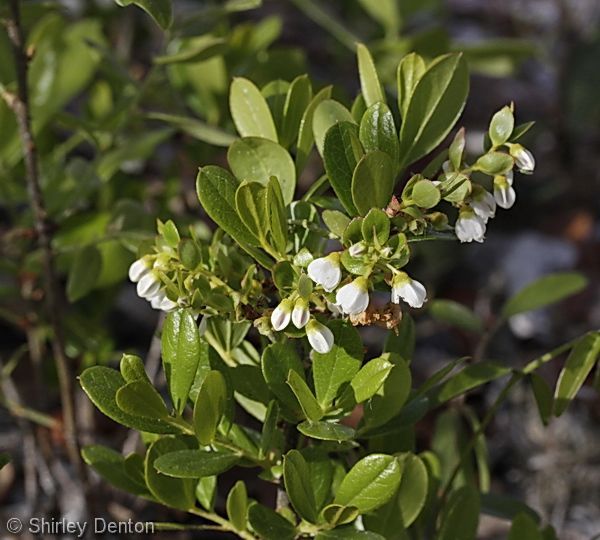FNPS Plant Database
Gaylussacia dumosa
Nomenclature
Common Name:
Synonym(s):
Genus species:
Family:
Ericaceae
Plant Specifics
Form:
Size:
Life Span:
Long-lived perennial
Flower Color:
Fruit Color:
Phenology:
Noted For:
Landscaping
Recommended Uses:
Considerations:
Availability:
Propagation:
Light:
Moisture Tolerance:
Always Flooded---------------------------------Extremely Dry
□□□□□□□□□□□□□□□□□□■■■■■■■■■■■■■■■■■■■■■□□□
Somewhat moist, no flooding -to- Very long very dry periods
Salt Water Flooding Tolerance:
Unknown
Salt Spray/Salty Soil Tolerance:
Low/no tolerance of salty wind or direct salt spray
Soil or Other Substrate:
Sand
Soil pH:
Suitable to Grow In:
8A,8B,9A,9B

USDA zones are based on the average annual extreme minimum winter temperature.
Don't know your zone? Click here to search by zip code.
Vouchered In:
Ecology
Wildlife:
Attracts native bees includeing Augochlorella aurata, A. Gratiosa, Megachile breuis pseudobrevis, M. Integrella plus the non-native Apis mellifera(honeybee) and Bombus irnpatiens (Deyrup et al. 2002).
Birds and small mammals eat the fruit.
Native Habitats:
Comments:
Ethnobotany:
General Comments:









